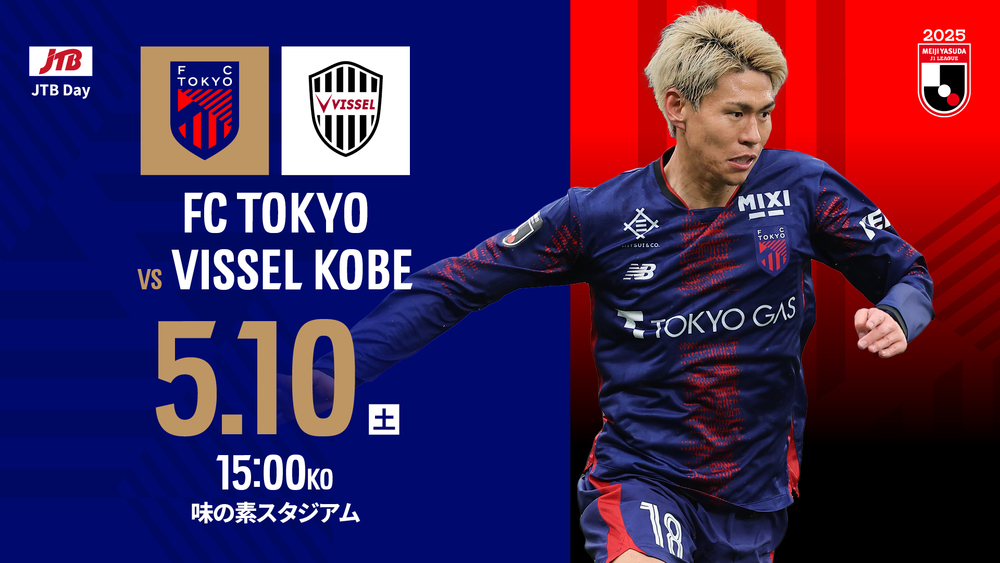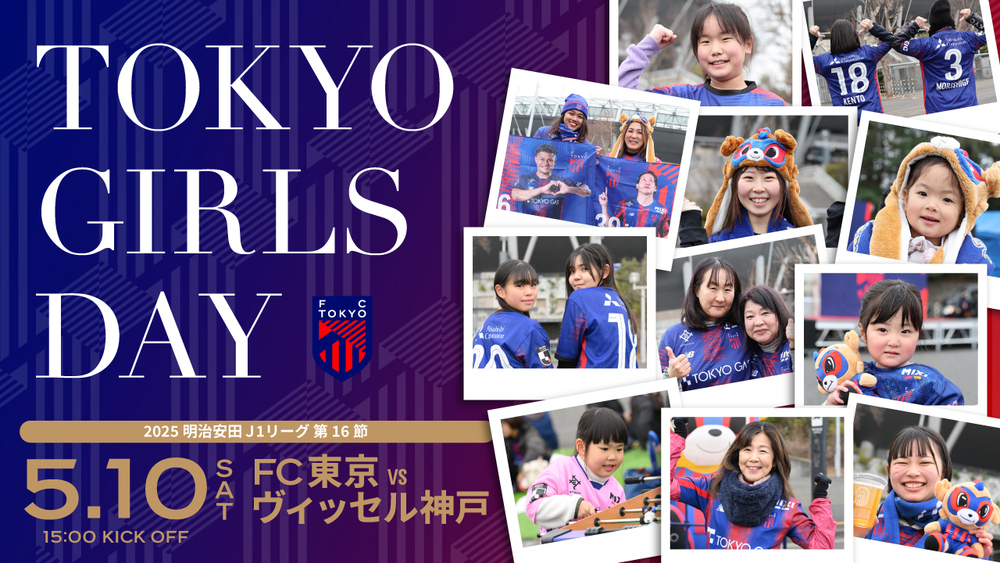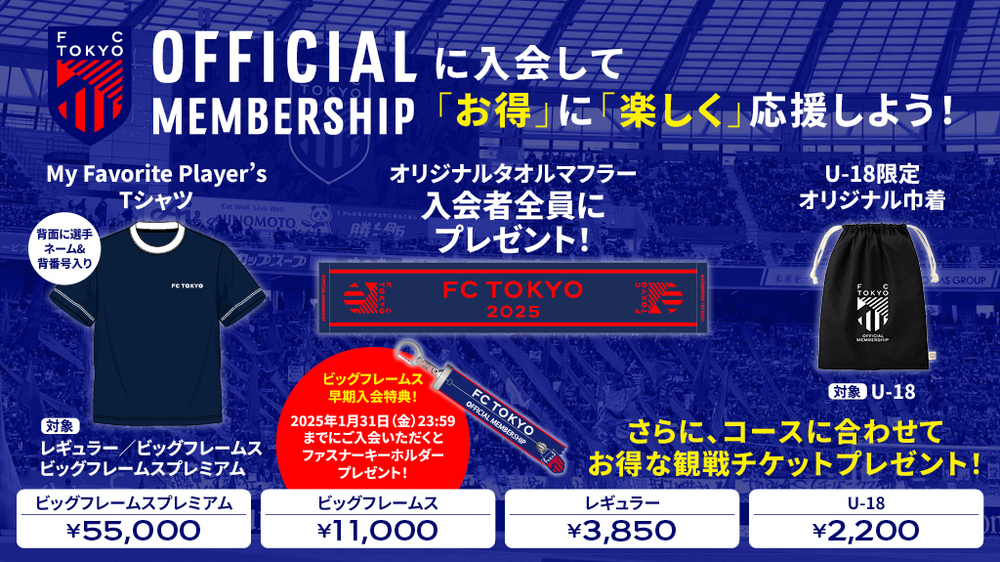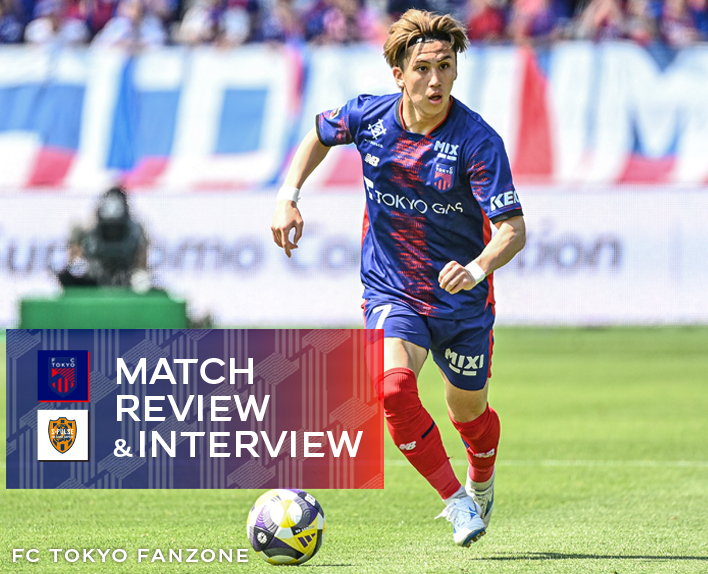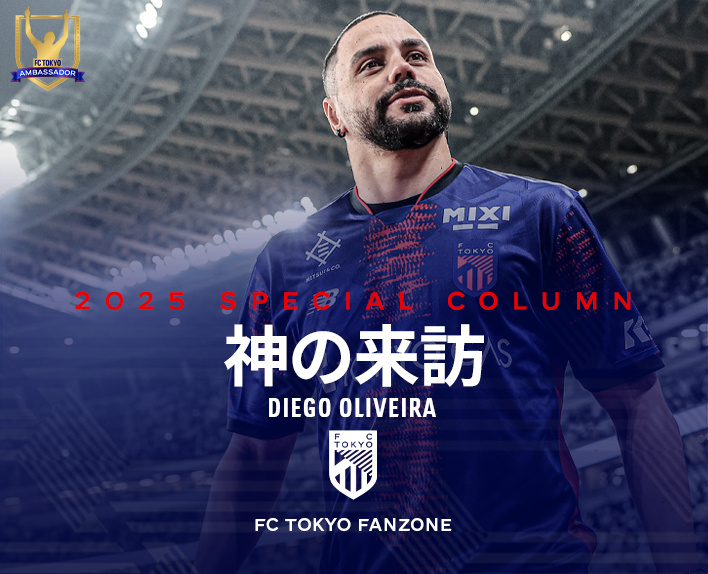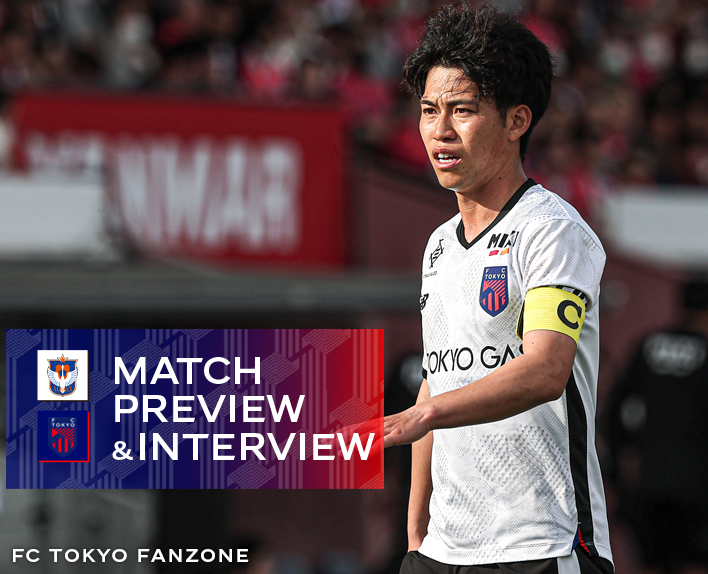Match Review
Back at Ajinomoto Stadium, Tokyo faces Shimizu S-Pulse in the Meiji Yasuda J1 League Sec. 13. In the previous match at Japan National Stadium against Gamba Osaka, Tokyo scored three rapid goals late in the game to secure their first victory in nine matches since Sec. 3. Riding the momentum of consecutive home wins, Tokyo aims to continue their streak. Returning to the basics of football by not losing battles for the ball, they want to demonstrate play calculated from the goal, transitioning from solid defense to effective attack.
Tokyo, facing a congested schedule with only three days between matches, made four changes to the starting eleven. Kosuke SHIRAI took the right wing-back position, while the double pivot in midfield consisted of Takahiro KO and Kento HASHIMOTO. Teruhito NAKAGAWA was deployed as the right inside half. Despite the tight schedule, Maki KITAHARA, who has started four consecutive official matches, is expected to challenge the J1 youngest scorer record. Additionally, Kota TAWARATSUMIDA, who showed overwhelming presence coming off the bench in the previous match, and Keito SATO, who has continued to play aggressively pushing forward, will start on the bench. Both are anticipated to be brought on at crucial moments in the game.
The game on the first day of Golden Week kicked off at 13:09 under clear skies at Ajinomoto Stadium.
1st HALF—Displayed coordinated offense and defense but conceded a regrettable goal just before the end of the first half
Tokyo maintained their traditional 3-4-2-1 system, while Shimizu, dealing with injured players, adopted a new 4-2-3-1 formation with Uno positioned as center back. In the early stages, Tokyo adjusted cautiously to Shimizu's approach, continuing with a development focused on probing for attacking opportunities.
Tokyo struggled to create a substantial attack, but at the 16th minute of the first half, they had a big chance from a simple play. Shirai sent a soft feed forward from the right rear, and Marcelo RYAN skillfully positioned his body to intercept the ball as the opposing player tried to trap it while retreating near the penalty area, then struck a right-footed shot to the near side. The goalkeeper saved it, and Nakagawa tried to capitalize on the rebound, but the opponent made another great save, so the opening goal was not scored.
At the 29th minute of the first half, Kitahara carried the ball vertically on the left side after cutting it with a high press, created space, and sent it to the center where Taka ran in, controlled the ball from a trap, and took a shot. Although it flew straight to the opposing goalkeeper, it was a scene that showed a good transition from defense to attack.
Tokyo is required to devise ways to break through the opponent's defensive network. Player Taka drops back to the last line while Kanta DOI opens up on the right side, and Shirai drops back to right side back to push Keita ENDO on the opposite side, trying to create gaps in the opponent's formation with a flexible system.
In the 44th minute of the first half, during a period when Shimizu, with multiple players actively engaging with the ball, was pressing, a penalty kick was conceded after player Inui was fouled inside the penalty area. Kitagawa scored from the penalty, giving the opposing team the lead in first-half stoppage time.
The first half ended with a score of 0-1. Just before the end, a regrettable goal was conceded, and the team went into halftime trailing by one point.
2nd HALF—Finding a way through side attacks but lacking a decisive blow
In the second half, we want to create gaps in the opponent's defense with precise positioning and a strong attack. Tokyo, without any substitutions, pressed into Shimizu's territory from kickoff and showed their intent to counterattack early on with a long shot from player Hashimoto.
However, in the second half, it was Shimizu who took control by dominating possession and attacking. They committed multiple players to the ball side, showing attacks involving several players. Tokyo also tried to connect from the back line while looking for attacking opportunities, but struggled against the opponent's compact defense and could not advance beyond the middle zone, resulting in monotonous attacks.
Tokyo, aiming to strengthen their attack, made a double substitution at the 15th minute of the second half, replacing Nakagawa and Kitahara with Sato and Tawara Tsukida, both inside halves, to try to break the deadlock. This created movement on the left side. Left winger Endo moved centrally depending on the situation, while Tawara Tsukida opened up on the left, dynamically changing positions to add variation to the attack.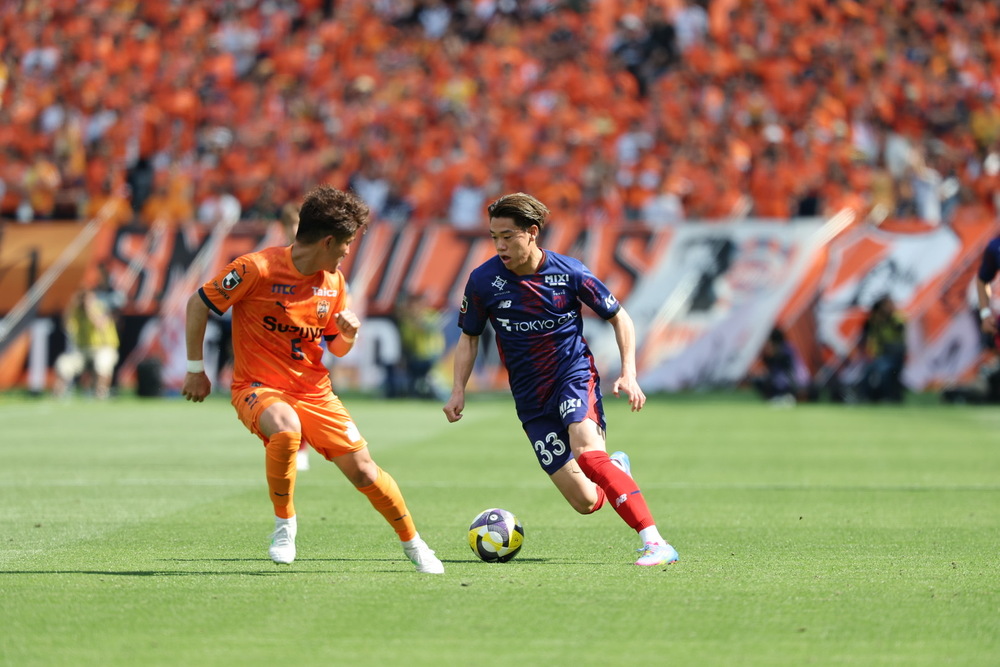
In the 19th minute of the second half, Teppei OKA made a long feed, and Shirai, who broke through on the right side, crossed the ball. Lucas RIAN met it with a header in the center, creating a great chance, but the impact was weak and the ball narrowly missed to the left of the goal. After that, Tokyo continued to have possession with plays like OKA's half-volley, but they couldn't shake the net. Gradually, Shimizu regained their rhythm and increased their possession scenes.
Player Tawara Tsukida, who scored a super goal in the previous match, tries to attack from the left side, but the opponent cuts off the dribbling routes both vertically and horizontally. Even so, he forcefully breaks through, advances near the goal line, and crosses the ball, making a desperate effort to get involved in scoring opportunities.
At the 32nd minute of the second half, a switch was made from Anzai and Hashimoto to Seiji KIMURA and Keigo HIGASHI. The formation was changed to place KIMURA in the center of the three-back defense.
However, at the 34th minute just after the substitution, Inui was allowed to dribble on a counterattack and carried the ball into the penalty area, scoring a goal. At a time when we wanted to strengthen the momentum of our counterattack, we conceded a regrettable additional goal.
At the 43rd minute of the second half, Kei KOIZUMI entered the pitch, replacing Shirai. The team captain, who took the right wing position, maintained a high position and showed an attacking stance by delivering crosses. However, the Shimizu defense, focusing on a solid defensive posture, made it difficult for the team to create clear scoring opportunities.
After the 5 minutes of displayed second-half additional time, the match could not be changed, and it ended in a 0-2 defeat. We were unable to present a victory to the red and blue fans and supporters who packed Ajinomoto Stadium, following the previous match, and suffered a frustrating shutout loss.
MATCH DETAILS
<FC Tokyo>
STARTING XI
GK Taishi Brandon NOZAWA
DF Soma ANZAI (32nd minute second half: Seiji KIMURA) / Teppei OKA / Kanta DOI / Kosuke SHIRAI (43rd minute second half: Kei KOIZUMI)
MF Hiroshi GAO / Kento HASHIMOTO (32nd minute second half: Keigo AZUMA) / Keita ENDO / Maki KITAHARA (15th minute second half: Kota TAWARATSUMIDA)
FW Marcelo Hian / Teruhito NAKAGAWA (15th minute second half: Yoshimasa SATO)
SUBS
GK Go HATANO
DF Yasuki KIMOTO
MF Kyota TOKIWA
FW Leon NOZAWA
MANAGER
Rikizo MATSUHASHI
GOAL
―
<Shimizu S-Pulse>
STARTING Ⅺ
GK Yuya OKI
DF Kengo KITAZUME/Yuji TAKAHASHI/Yutaka YOSHIDA (45+1 min 2nd half: Kento HANEDA)
MF Kai MATSUZAKI (32 min 2nd half: Akira NAKAHARA)/Zento UNO/Masaki YUMIBA/Matheus BUENO/CAPIXABA (45+1 min 2nd half: Reon YAMAHARA)
FW Koya KITAGAWA (32 min 2nd half: DOUGLAS TANKI)/Takashi INUI (40 min 2nd half: Shinya YAJIMA)
SUBS
GK Yuui Inokoshi
DF Rin Oohata
MF Yudai Shimamoto
FW Ahmed Ahmedov
MANAGER
Tadahiro AKIBA
GOAL
45+1 min First Half: Koya KITAGAWA / 34 min Second Half: Takashi INUI
[Interview with Coach Rikizo MATSUHASHI]
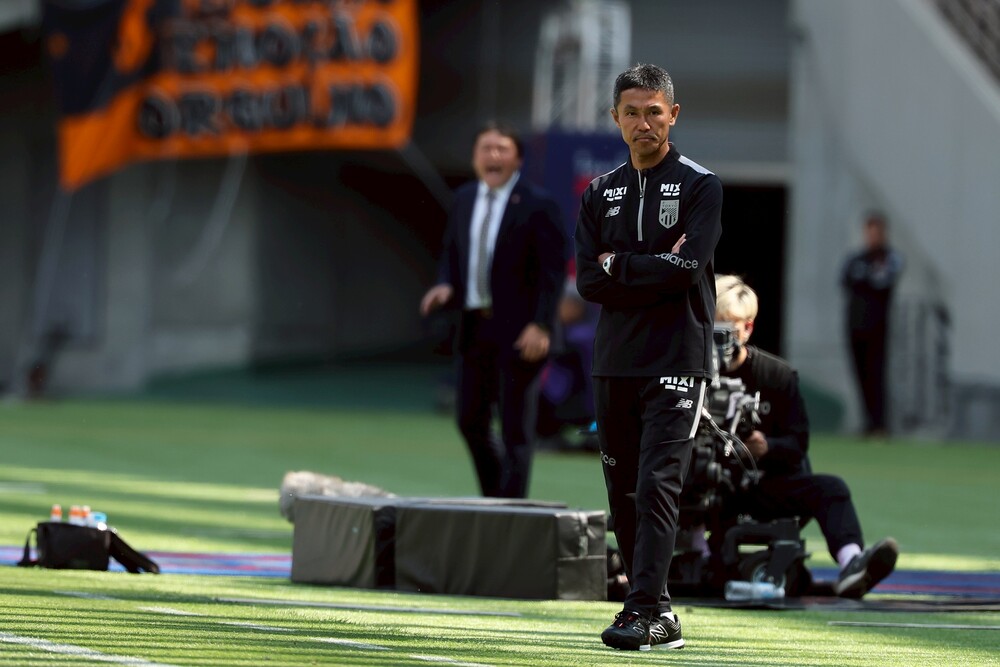
Q, please review today's game.
A, Since it was Golden Week, many fans and supporters came to the stadium to support us, but I think we played a very disappointing game with little to watch. I am truly filled with feelings of apology right now.
Q: You mentioned that there were few highlights in the match. What do you think was the main reason for that?
A, numerically, there may have been moments when we controlled the ball, but overall, it was a game where the attacking coordination was largely off. Using long balls effectively would have been ideal, but since that didn’t work well, the change in approach made it difficult to synchronize our play. In the second half, we were more on the offensive, but the final quality in those moments was not high, which led to some counterattack situations against us.
In each and every play, in terms of controlling the ball or creating time, it seems that Shimizu S-Pulse had the edge in the quality of individual plays. It's not that we lacked that ability, but today we couldn't demonstrate it properly, resulting in a game with few highlights to watch.
Q. Please tell us the purpose of the player substitution.
A, up front, there was an intention to include players who can effectively challenge both wide and inside positions. While the players who originally played the match also have such characteristics, the decision was made to entrust the next opportunity to the players waiting for their turn. The changes in the defensive midfield and center back positions were made to create an advantage at the back by putting players in their natural positions, aiming for smooth distribution to the front line and applying more pressure on the inside. However, the play became overly reliant on crosses. There was one close chance, but the quality was not demonstrated in the final moments. Also, when the opponent was solidifying their defense in front of the goal, we were unable to show the quality of varied attacks, such as middle-range shots from negative angles or other tactical variations to unsettle the opponent and finish the play in today’s game.
Q. The players are of high quality, and considering what Coach Rikizo MATSUHASHI has been working on at Albirex Niigata, it is very frustrating. How does the coach perceive this?
As you mentioned, I also believe I can do much more. In fact, during the team-building camp, we were able to demonstrate strengths in those areas, so I felt very encouraged. Even though we faced difficulties once the season started and struggled to secure wins, there is a challenge in aligning our focus on the players' courage and their continuous efforts to try, while not getting distracted by various factors and figuring out how to make the best use of each player's strengths.
Since we are using a new system starting this season, I believe it naturally takes time. It might be enough if someone says that ten or so rounds are sufficient, but within that period, I personally feel the difficulties caused by injuries and the challenges in coordination and combinations. However, during the preparation phase, we try to provide the players with as clear information as possible so they can approach the games confidently, and in that regard, I think we have been somewhat successful.
Even so, when it comes to actual games, I believe that my role in making adjustments, how I utilize players, placing the right people in the right positions, and the timing of these decisions is a major responsibility I must take on. There have been many moments in the past when this coordination fit perfectly, but currently, there is some frustration and a bit of instability because those aspects are not coming through as much as before.
[Player Interview]
<Marcelo RYAN>
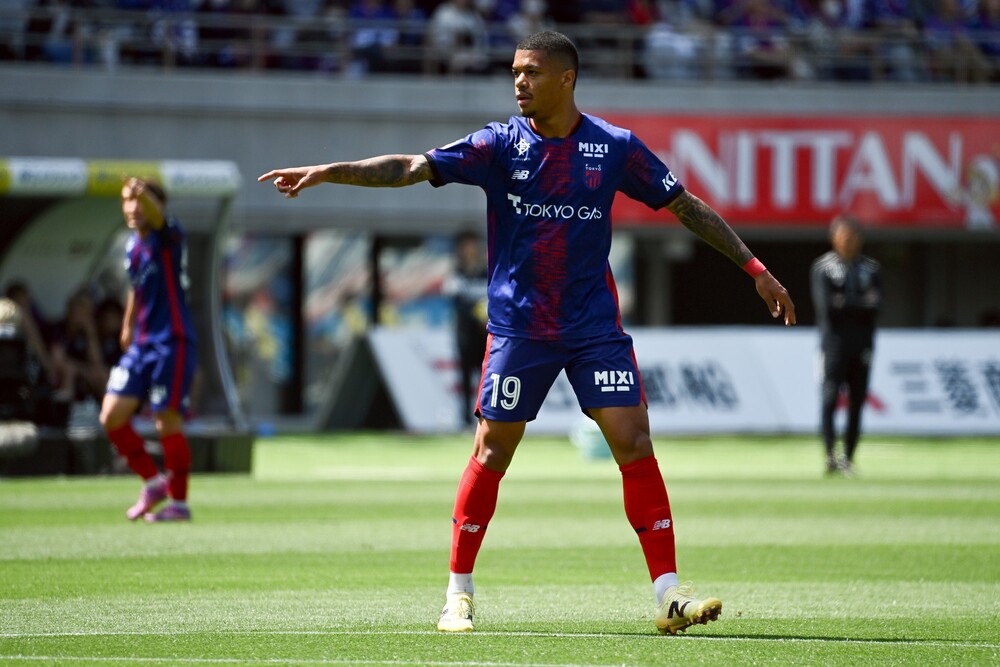
Q. As the number of times you appear in front of the goal and your coordination with teammates gradually improve, everyone is eagerly awaiting your first league goal. What challenges do you feel?
A, to overcome this unfavorable situation, we are working hard in our daily training. Not only the forwards including myself but also the defenders, we want to further strengthen our teamwork as a whole to aim for goals. As of today, 13 matches have been completed, and it is frustrating that we have not been able to score in the league for a long time. Under the guidance of head coach Rikizo MATSUHASHI, the team is reorganizing the style of football we want to express, and I myself aim to score my first league goal of the season in a way that fits the football everyone on the pitch should strive for.
Q. There were many scenes where the attack struggled against Shimizu S-Pulse's solid defense.
From the coach, we were asked not to limit ourselves to short passes at our feet, but to look for timing to play balls behind the defensive line and to make runs into the space behind. Personally, I made few runs into the space behind the opposing defenders and was unable to express the plays that were expected of me well. As a team, the situation is far from good. I want to contribute to the team quickly with plays that break through this difficult situation.
Q: As you play in the lone forward position, the opponent's defense seems to be getting tighter with each match. How has your awareness of teamwork and utilizing those around you changed?
A, playing at the top position requires connecting various balls to the attack. For example, when contesting a long ball, you need to decide whether to head it to a teammate or control it yourself. This judgment is essential. Also, if your teammates do not fully trust the play you decide on, it won't lead to good reactions. When they trust my play and make runs or receive passes, and if the ball is held in advanced positions for longer, I believe not only I but the entire team will score more goals.
<Soma ANZAI>
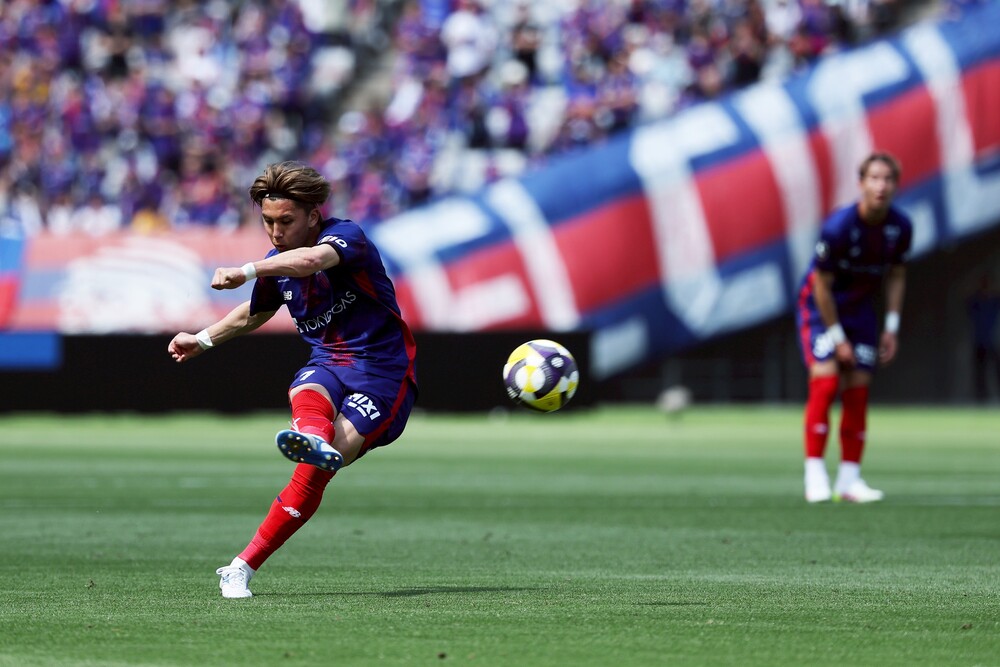
Q, It was a tough match.
A, in the previous match, the long-ball strategy that leveraged Marcelo RYAN and Keisuke Sato worked fairly well. For today as well, we planned to start the game using a similar approach, but it did not go well. Since it didn’t function properly, the team was not aligned on whether to connect passes or kick the ball, resulting in a consistently disjointed game flow, I believe.
Q: It became difficult to break down the opponent after conceding a goal.
A, I think that was almost everything in today’s match. Regarding defense, I believe we hardly gave the opponent any chances in the first half, and with that one goal, Shimizu S-Pulse was able to play comfortably in the second half. I think we made the game more difficult for ourselves towards the end of the first half.
Q. What do you think were the factors that caused the mismatch?
A, the team could not align the decisions to kick and to connect as a whole. At first, there was a clear intention to kick and push forward, but we need to establish a common understanding of the exact moment to transition to the next phase.
Q. Can you view identifying the issues as a positive outcome?
A, no, this is something we have been working on continuously, and if we don't improve during the match, it will just be the same repeated issue every time, so I want to be able to make more improvements during the game.
Q. As one of the three defenders now, is it necessary for you to give instructions and communicate proactively?
A, I think it becomes necessary as long as I play in the back. It's a difficult situation, but I believe I have to do my best wherever I'm placed, so I want to give my all to what I can do.
